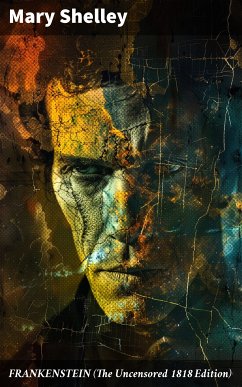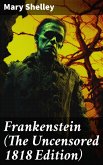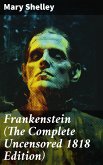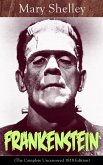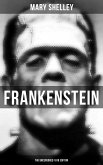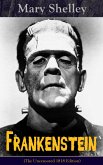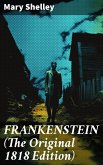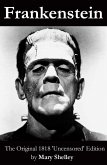Mary Shelley'Äôs "Frankenstein (The Uncensored 1818 Edition)" is a seminal work that intricately weaves themes of creation, responsibility, and the perilous pursuit of knowledge within a Gothic framework. Shelley employs a rich, evocative prose that merges epistolary elements with philosophical discourse, reflecting the tensions present in early 19th-century Romantic literature. The uncensored edition of this iconic tale invites readers to confront the moral dilemmas faced by Victor Frankenstein as he grapples with the responsibilities of his creation, a being rendered monstrous by societal rejection and existential despair. This context places the novel at the intersection of the Enlightenment and burgeoning Industrial Revolution, prompting critical questions about humanity's relationship with technology and nature. Mary Shelley, the daughter of early feminist thinker Mary Wollstonecraft and political philosopher William Godwin, was profoundly influenced by her intellectual heritage and her tumultuous relationships, particularly her connection with Percy Bysshe Shelley. This background informed her exploration of the human condition, the implications of unchecked ambition, and the notion of creator versus creation, casting a shadow that looms large over modern existential inquiries. "Frankenstein (The Uncensored 1818 Edition)" is a must-read for anyone seeking to understand not only the genesis of science fiction but also the philosophical questions that resonate through time. Shelley's work challenges readers to reflect on the ethical boundaries of scientific exploration and the repercussions of alienation and monstrosity, making it a timeless exploration of the human experience.
Dieser Download kann aus rechtlichen Gründen nur mit Rechnungsadresse in A, B, BG, CY, CZ, D, DK, EW, E, FIN, F, GR, H, IRL, I, LT, L, LR, M, NL, PL, P, R, S, SLO, SK ausgeliefert werden.

